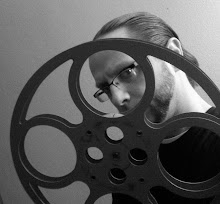There is a lot of talk about inclusion and progress in Hollywood these days. People of color and minority groups are finally crossing over doors that were often closed to them; directing and starring in major productions and hopefully drawing people to their works who would otherwise not be.
One group of people that has always struggled in the movie theatre are the hearing impaired. Captions are limited, and the issued glasses, headphones, and transmitters don’t always work or at least not well enough for a deaf person to enjoy the big-screen experience with everyone else. Speaking from experience, this Blogger worked as a projectionist for Cinemark theatres for nearly a decade, and although our gear was well-maintained, there always seemed to be an issue with our blasted headphones.
But a major leap forward is happening this week with the new film, CODA. The drama film about the only hearing member of a deaf family will arrive with open-captions in all U.S. and U.K. theatres when the curtain rises this Friday. It will also be streamed with full subtitles in nearly 40 languages on Apple TV+. Apple worked with theatres to ensure the film would be played everywhere with the captions burned into the print, which is thought to be a first for a feature film.
The idea could not be implemented into a better story. CODA follows 17-year-old Ruby (Emilia Jones), who interprets for her deaf father, mother, and brother…in all aspects of their lives including their fishing business and doctor’s visits. The family communicates with sign language with all of the deaf characters being played by deaf actors. The film has been a success so far; winning four awards at the famed Sundance Film Festival this year.
CODA, which is an acronym for a child of deaf adults, follows on the heels of last year’s SOUND OF METAL, which was about a drummer who lost his hearing and earned six Oscar nominations. By presenting the film with open captions, CODA is opening the doors wide for those who would usually not make it past the lobby; which is the way it should be because movies should be welcoming for all. And that certainly isn’t limited to patrons. CODA is an excellent example of why it’s important that non-able-bodied actors should have the opportunity to play characters that represent them. To have a hearing-actor play a deaf character is one thing, but now we’re moving into a new generation of actors, filmmakers, and viewers. When the movies find a way to be for everyone, that is progress.
*
Special thanks to Suzanne Crandall, friend of Reel Speak, for bringing this film to my attention.


No comments:
Post a Comment
A few rules:
1. Personal attacks not tolerated.
2. Haters welcome, if you can justify it.
3. Swearing is goddamn OK.